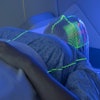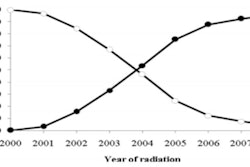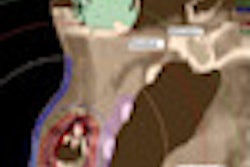Genetic markers associated with the development of erectile dysfunction in prostate cancer patients following radiation therapy (RT) have been identified, according to a study published online on September 27 in the International Journal of Radiation Oncology, Biology, Physics.
Researchers at Mount Sinai School of Medicine and Albert Einstein College of Medicine of Yeshiva University discovered the markers, or single-nucleotide polymorphisms. A team led by Barry Rosenstein, PhD, professor of radiation oncology at Mount Sinai, conducted the two-part study: The first part was to discover the candidate genetic markers of side effect risk, while the second was to confirm which of those markers were replicated in a second group of patients.
The first group of prostate cancer patients included 132 men who developed erectile dysfunction after radiotherapy and 103 men who did not. In these men, the researchers identified a set of genetic markers associated with erectile dysfunction (Int J Radiat Oncol Biol Phys, September 27, 2012).
Rosenstein and colleagues then confirmed that 12 single-nucleotide polymorphisms were associated with erectile dysfunction in a second group of patients, of whom 128 developed erectile dysfunction after radiotherapy and 102 did not. Radiotherapy in both groups included external-beam radiation, prostate brachytherapy, or prostate brachytherapy and external-beam radiation.
The 12 single-nucleotide polymorphisms were located near genes that seemed to be related to erectile function rather than radiation response. These markers may affect genes that sensitize a patient to developing erectile dysfunction when exposed to radiation during therapy, the researchers concluded.
The Prostate Cancer Foundation estimates that 25% to 50% of all men who undergo prostate cancer brachytherapy will experience erectile dysfunction. For men who undergo external-beam radiotherapy, the rate is 65% to 85%.


















